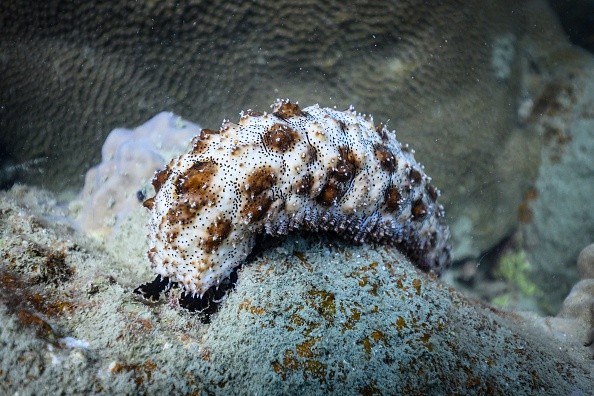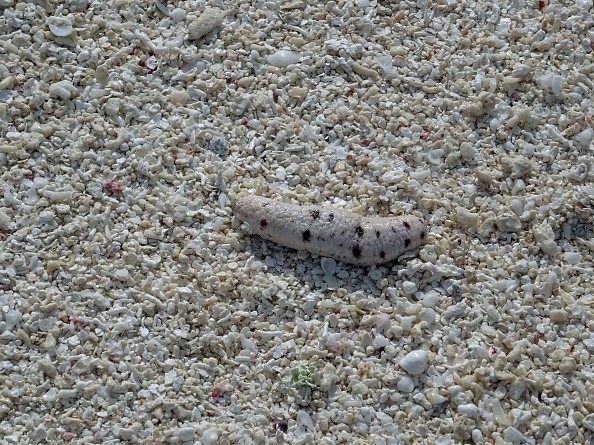According to new research, overharvesting of the Great Barrier Reef's tropical sea cucumber is putting the marine animal in danger.
Tropical sea cucumbers are in high demand in countries in East and Southeast Asia, and a decline in their population has prompted calls for better protection.

Decline in Tropical Sea Cucumber Populations Due to Overharvesting
Most sea cucumbers come from China where they are consumed.
It is estimated that the global market for sea cucumbers is worth more than $200 million per year, according to Phys.org.
A team from the University of Sydney and the University of Queensland led the research, which was published in Biological Conservation.
Dr. Maria Byrne, professor of Marine Biology from the University of Sydney's School of Life and Environmental Sciences, said that sea cucumbers are earthworms or vacuums of the water, and that their role in reef health is important.
Every year, abundant sea cucumber populations on unfished reefs remove tons of lagoon sediment from the water with their bodies.
These species are in danger around the world, and their harvest on the Great Barrier Reef is particularly worrisome.
There is a need for prudence and regulatory reforms based on fishery data acquired along Australia's principal sea cucumber fishing site on the Reef.
Of the world's 16 endangered or vulnerable sea cucumber species, 10 may be found on the Great Barrier Reef.
Data demonstrates that some of the world's most valuable species are in decline as a result of escalating and ongoing worldwide overharvesting.
Teatfish: The Most Affected Group of Tropical Sea Cucumbers
Among tropical sea cucumbers, the teatfish are of particular concern because of their rapid demise.
A strong legal foundation exists for restricting the collection and export of teatfish because they are protected under the Convention on International Trade in Endangered Species (CITES).
White and black teatfish accounted for more than 20% of the Queensland fishery's total harvest in recent years.
As a result of their high market value and low reproductive capacity, teatfish populations are at the greatest risk.
Due to the removal of fisheries, the reef's inhabitants are unable to mate.
Despite the fishery's reopening in 2019, black teatfish populations have not recovered since their fishery was halted in 1999 owing to overharvesting, as per Dr. Kenny Wolfe from the University of Queensland.
On Dec. 20, 2020 a bright spot emerged when Environment Canada's Sussan Ley backed CITES listing and decided that black teatfish harvest would not be allowed in acknowledgment of their perilous status.
A "wonderful win" for one of the 10 endangered or vulnerable sea cucumbers, but "additional policy interventions are needed to guarantee other sea cucumber populations don't start edging toward extinction," Ley said.

Need for Government Protection
According to Professor Byrne, conserving sea cucumbers requires strong statutory regulation.
There has long been a non-regulatory-and thus non-binding-Performance Measurement System in place for the Great Barrier Reef sea cucumber fishery.
As a result, the business has been harvesting sea cucumbers for decades without knowing how their harvests are affecting the sustainability of the stock.
All tropical sea cucumber species harvested on the Great Barrier Reef require periodical stock assessments to be conducted within a legislative, regulated, and enforced policy framework, as per Science Daily.
Only then would researchers be able to determine what a sustainable harvest is and identify species-specific treatments, in the hope of avoiding the local extinction of these ecologically important sea cucumber species on the Great Barrier Reef.
Related Article : Sea Cucumbers Now the Face Of Aquacentric Organized Crimes
For more news, updates about sea cucumbers and similar topics don't forget to follow Nature World News!
© 2026 NatureWorldNews.com All rights reserved. Do not reproduce without permission.





